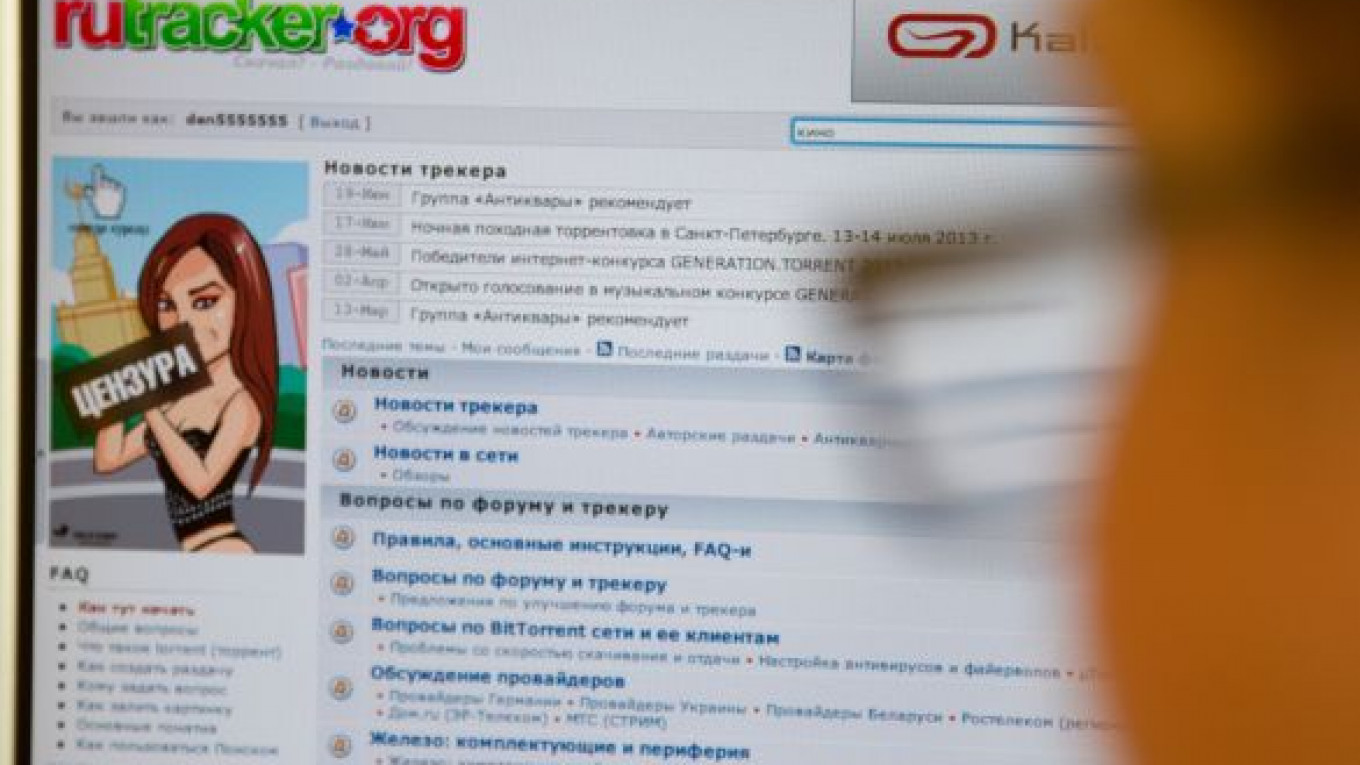Hours after a new law targeting online piracy went into effect last week, it became clear that it was having problems as claimant after claimant was sent packing by a court in Moscow.
The rules for filing claims with courts are not clear enough for businesses, chief executive of film distribution company Kino Bez Granits Sam Klebanov said Friday, a day after the Moscow city court rejected a claim filed by his firm.
Kino Bez Granits, or Movies Without Borders, complained over copyright violations by Russia's largest social network, Vkontakte, which is widely believed to be one of the biggest resources hosting pirated content.
The court Thursday also rejected two claims by firm Seichas, a subsidiary of television company TNT, which owns the website Now.ru, offering online movies.
The anti-piracy law allowing the courts to grant rights holders' claims by blocking online resources that provide access to pirated content went into effect Thursday.
Klebanov's company was the first rights holder to file a claim under the new law, the CEO told RIA Novosti.
Kino Bez Granits requested the enforcement of copyright on five recent foreign films.
Rejecting the claim, the court said the company had failed to provide documents confirming its exclusive right to distribute the movies in Russia, according to a statement on the court's website.
The court also said Kino Bez Granits had failed to provide documents confirming that Klebanov, who signed the claim, is its chief executive.
The claims filed by Seichas also contained violations, the court said in a separate statement.
Klebanov said Friday that his company intended to resolve the "technical issues" referred to by the court.
"The rules for filing the claims were not made clear initially," he tweeted. Kino Bez Granits will prepare and file a suit again, he said.
Explaining his motives on his blog on the website of GQ magazine, Klebanov said movie production had high costs, while his company paid royalties for the distribution rights.
"I do business, not charity, and it should bring profit at least," he said.
The new law has come in for harsh criticism from some major IT companies, which claim that it also threatens resources providing access to legal content with closure if they are registered under the same IP-address as those violating the copyright law.
The anti-piracy initiative might backfire on the rights holders, for whom Internet is a major means of promoting the content, said Matvei Alexeyev, executive director of the Foundation for Assistance for Internet Technologies and Infrastructure Development.
Roskomnadzor, the federal telecommunications watchdog, charged with ensuring the regulation's enforcement and working with rights holders, opened a special website Thursday to file claims online. The resource will also contain a list of webpages with pirated content.
The watchdog will need 97 million rubles ($3 million) of additional federal funding a year to fulfill its duties related to the anti-piracy law, according to a bill drafted by the Communications and Press Ministry, which oversees Roskomnadzor.
Roskomnadzor will need to set up a separate department of 25 employees and expand its staff in the regions by 92 employees, RIA Novosti reported, citing an explanatory note to the bill.
Contact the author at irina.filatova@imedia.ru
A Message from The Moscow Times:
Dear readers,
We are facing unprecedented challenges. Russia's Prosecutor General's Office has designated The Moscow Times as an "undesirable" organization, criminalizing our work and putting our staff at risk of prosecution. This follows our earlier unjust labeling as a "foreign agent."
These actions are direct attempts to silence independent journalism in Russia. The authorities claim our work "discredits the decisions of the Russian leadership." We see things differently: we strive to provide accurate, unbiased reporting on Russia.
We, the journalists of The Moscow Times, refuse to be silenced. But to continue our work, we need your help.
Your support, no matter how small, makes a world of difference. If you can, please support us monthly starting from just $2. It's quick to set up, and every contribution makes a significant impact.
By supporting The Moscow Times, you're defending open, independent journalism in the face of repression. Thank you for standing with us.
Remind me later.






